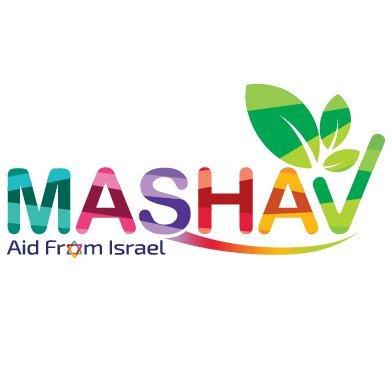Mashav was founded in 1958 following a trip by an Israeli leader, Foreign Minister Golda Meir to the newborn states of Africa. According to MASHAV’s deputy-director, the former ambassador to Upper Volta (Burkina Faso), HE. Jacques Dekel, ‘‘Golda was inspired by what she saw as similarities between Israel and the new nations of Africa. Both were newly independent states working to create self-sufficient agricultures in warm, semi-arid climates. She saw the need for an Agency in which Israel and the developing world could participate in an exchange of skills, experience and knowledge’’. ‘‘Historically, because of its geographical position, the State of Israel has always been seen as the ‘bridge to Africa’, ‘’added Dekel.
70% of MASHAV-sponsored projects in developing nations have been in the field of agriculture. This is the area in which Israel’s expertise is world renown and which is often most vital to developing Nations. It also focuses on human capacity building and on the “training of trainers” approach, sharing with other countries Israel’s experience and expertise as well as innovative technologies.

MASHAV’s assistance and cooperation with nations such as Cameroon is developed in four different ways. The first is bringing to Israel personnel from these countries to receive training and instruction in special workshops and seminars designed specially to meet the needs of specific projects. The second way is the use of short-term on-the spot courses given in the developing nation itself under the auspices of MASHAV. These are high-level workshops in many relevant fields: forestation, fishery development, arid-land agriculture, advanced irrigation methods etc. The third aspect of MASHAV’s operations, is Israeli experts sent abroad on long-term missions. The decision whether to send these long-term experts abroad is usually based on reports from short-term missions, the fourth aspect of the assistance program. All four aspects of the MASHAV program have been conducted with Cameroon, and continued to be developed
The first projects in Cameroon were set up as early as 1960, when MASHAV assisted in the establishment of two centers in Yaoundé and Abaala designed to train young Cameroonians in both agricultural subjects and philosophy of citizen responsibility.
- In the early 1970 Israeli experts also assisted in conducting a special project to develop improved local methods of breeding poultry. In the same period, they also helped to found an experimental station to introduce and test new strains of vegetables in Cameroon’s Foumban locality.
- The renewal of diplomatic relations in 1987 brought about an immediate resumption of MASHAV’s activities in Cameroon. Several Israeli experts have already been sent to Cameroon to carry out short-term missions. Since that period more than 2000 Cameroonians participated to tailored training courses in Israel.
- From June 25 to July 8, 2010, opening of the 7th Eye camp. A team of two ophthalmologists surgeons from Rambam hospital in Israel were sent by MASHAV for the treatment of eye diseases. They brought medical equipment and installed a camp at CNPS hospital. The 8th Eye camp took place at the Bamenda regional hospital from 17 to 26 July 2012.
- In January 29, 2015, 75 former MASHAV trainees attended a gathering to revive the Shalom Club in Yaounde and select an Executive. The same year in December, the first implementation phase of the Israel-French cooperation (AFD-MASHAV-MINADER) in Cameroon to boost irrigation with the visit of MASHAV expert.
- Between January 2017 and December 2019 Mashav in collaboration with GIZ and the Cameroon’s Ministry of Agriculture and Rural Development (MINADER) executed the Mango value chain project. The project aimed at increasing the productivity and income of small farmers (1000 small farmers) by 20% and at creating better employment opportunities by improving production techniques in the mango value chain in Cameroun. Hence, jobs were secured through the creation of tree nurseries, and through processing- and export-linked activities.
- In 2017 MASHAV donated of a modern nursery to the Binguela Agriculture Practical School;
- From November 2021 to December 2022, Training of Internal Displaced young women on income generating activities and livelihood (three editions were organized in the Littoral (Douala), Centre (Yaoundé), and East (Bertoua) regions.
Professional training programs are sometimes conducted online.
